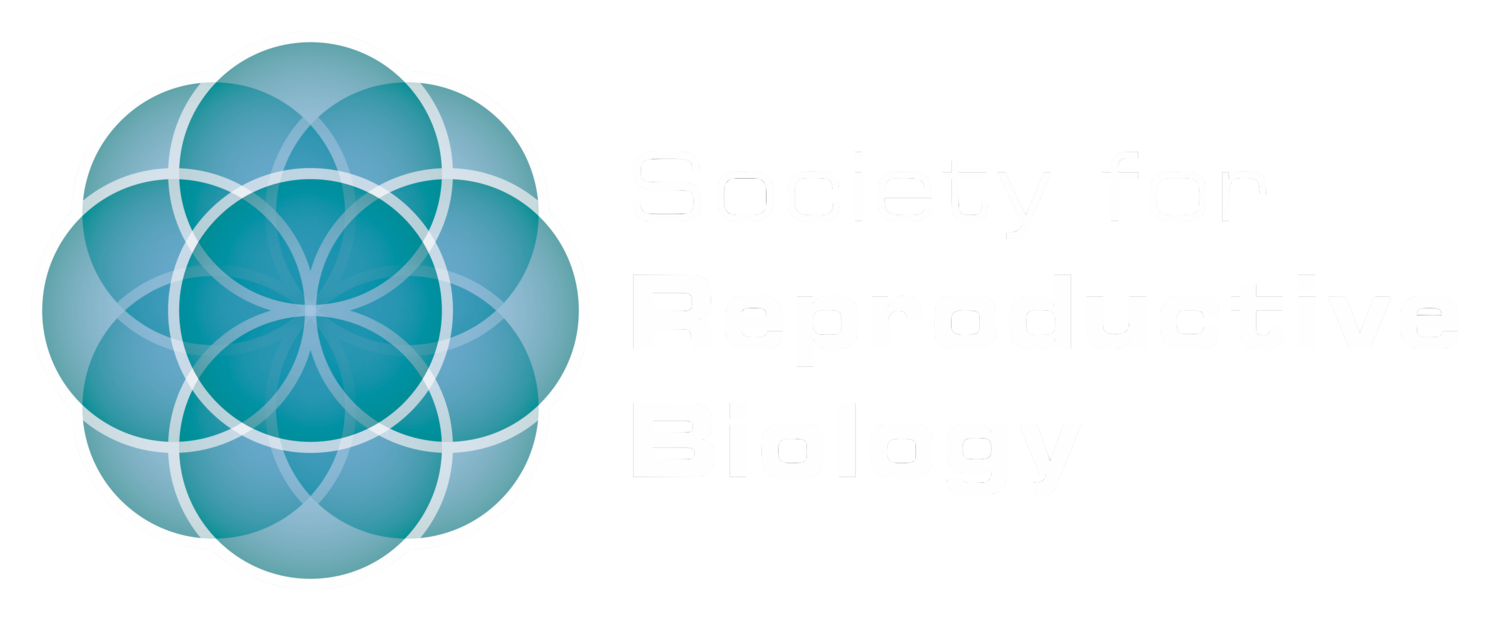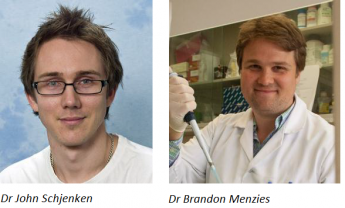2018 srb ecr collaborative research travel award
Dr Alyce Swinbourne (University of Adelaide) and Dr Tamara Keeley (University of Queensland)
Alyce and Tamara will use the funds for the project entitled “The analysis and validation of a glucocorticoid enzyme-immunoassay (EIA) for colostrum, milk and faeces collected from gestating Merino ewes”. Alyce will be travelling to the University of Queensland to be trained by Tamara in conducting and developing an in-house glucocorticoid EIA that will be established at the University of Adelaide’s Roseworthy Campus. From this it is hoped Alyce will be able to set up an endocrine assay lab that can measure numerous hormone concentrations in a wide range of biological samples from domestic species. It is envisaged this fund will help to strengthen new links between the two research groups
2017 srb ecr collaborative research travel award
Dr Fiona Brownfoot (University of Melbourne) and Ms Sarah Delforce (University of Newcastle)
This award will establish a new collaboration and enable Sarah Delforce to learn the isolation of primary human cytotrophoblast and human umbilical vein endothelial cells (HUVEC) from human placenta. In addition, Sarah will learn how to culture and treat these cells in vitro. This will provide the Newcastle team with a more clinically relevant model of human placentation than the immortalised cell lines currently used, thus improving their experiments, publications and impact are defining the importance of the renin-angiotensin system. The researchers envision that taking these new techniques back to Newcastle will result in at least one co-authored publication and the relationship gained through this initiative will lead to further collaborative efforts and research outputs.
Dr Jessie Sutherland (University of Newcastle) and Dr Kylie Dunning (University of Adelaide)
The SRB award will be used for Jessie Sutherland to travel to the Robinson Research Institute, University of Adelaide. Whilst there, Jessie will utilise the expertise of Kylie Dunning to learn immature follicle isolation and culture, in addition to IVF and embryo culture in mice. Jessie will in turn provide training in ovarian explant culture and non-surgical embryo transfer (NSET) in mice. Furthermore, the researchers will plan their future long-term research collaborations and provide Jessie with the opportunity to give a research seminar on her work, as well as have discussions with numerous researchers at the Robinson Research Institute
2016 srb ecr collaborative research travel award
Dr Sheena Regan (Curtin University) and Dr Shayanti Mukherjee (Hudson Institute)
This award will establish a new collaboration between two ECR researchers with the aim of studying, isolating and culturing ovarian mesenchymal stem cell (MSC) progenitors or pericytes. The travel grant will provide an opportunity for Sheena to be trained in using FACS sorting protocols in Caroline Gargett’s lab at the Hudson Institute. Specifically, the isolation of pericytes from ovarian cortex will be isolated and cultured to undertake clonogenicity and self-renewal studies. Growth factors secreted by the pericytes will also be assayed. The two researchers will then work together to develop a 3D organoid culture protocol using tunable nanotechology to assess pericyte/MSC interactions with the microenvironment. The outcome of this collaboration should lead to publications and the generation of data for future grant applications and collaborations.
Dr Michael Pankhurst (University of Otago) and Ms Rebecca Kelley (University of Melbourne)
The funds will be used for Dr Pankhurst to travel to the University of Melbourne to learn how to collect, handle and vitrify mouse oocytes and embryos, and how to transfer them to pseudopregnant recipients to assess fetal development. Dr Pankhurst will use this technology at the University of Otago to investigate female infertility in a transgenic mouse strain (Thy1.2-AMH). In addition to Dr Pankhurst’s training, the Travel Award will enable Ms Kelley and Dr Pankhurst to discuss experiments and for Ms Kelley to culture wild-type mouse embryos in vitro with and without the addition of recombinant AMH to the culture medium to examine the role of AMH in preimplantation embryo development. This collaboration will result in not only the learning of new techniques but an additional publication for both researchers.
2015 srb ecr collaborative research travel award
Dr Hannah Brown (The University of Adelaide) and Dr Sam Buckberry (University of Western Australia)
Drs Brown and Buckberry have shared mutual research interests for a number of years, and have been successfully funded together on a number of projects. Together, Drs Brown and Buckberry are experts in the fields of molecular biology, preimplantation embryo biology, transcription and bioinformatics. Recently, Dr. Buckberry was recruited to the team of Prof. Ryan Lister, at University of Western Australia. Prof. Lister’s lab has pioneered ground-breaking new genomics techniques for comprehensive epigenome and transcriptome analysis. This travel award will be This travel award will be used to achieve a number of outcomes: to discuss and prepare a review on mechanisms of transcriptional regulation in the preimplantation embryo; to discuss a meta-analysis of haemoglobin gene expression in reproductive tissues; to discuss newly generated RNA-seq and RNA m6A-seq data sets and prepare a manuscript; to design large-scale project, and perform pilot ATAC-seq project on preimplantation embryos; and for Dr Brown to present research seminar at University of Western Australia.
Dr Lisa Akison (University of Queensland) and Dr Jason Liew (Monash University)
This travel award would allow both Dr Akison and Dr Liew to establish a new collaboration and enhance their experimental outputs. Dr Akison will benefit by gaining expertise in tissue processing and stereological analysis of the ovary, which is a new technique that is crucial for her research project. She will also gain knowledge through discussions with Dr Liew that will assist to refine her research questions and raise any potential limitations with this technique that need to be addressed. Dr Liew will benefit by establishing a research contact that could generate future joint publications to enhance his track record. There would also be the opportunity for both researchers to be invited back to their collaborator’s home institution to present a departmental seminar and thus raise their profiles in the ECR community generally
2014 srb ecr collaborative research travel award
Dr Brandon Menzies (University of Melbourne) and Dr John Schjenken (Robinson Research Institute, The University of Adelaide)
The SRB ECR Collaborative Travel Award is going to be used to fund the travel of Dr Menzies to Adelaide in July 2015. The objective of the visit is for Dr Menzies to receive training in techniques used to analyse the female tract response to seminal fluid with the ultimate aim to collaborate and generate an in vitro model examining the signalling properties of tammar wallaby and other species seminal fluid using mouse uterine epithelial cells. These experiments may allow us to understand seminal fluid signalling biology in species where it is challenging to obtain appropriate tissues. Further, these studies will give an increased understanding of the evolutionary importance of seminal fluid signaling. Our initial experiments during this visit will examine the signalling properties seminal fluid of closely related rodent species, rat, on mouse uterine epithelial cells to establish our model. We aim to generate preliminary data from this visit which will contribute towards a manuscript and potentially, future grant applications. Most importantly, this visit will allow face to face contact and the opportunity for Dr Menzies and Schjenkento consolidate an invaluable, collaborative relationship. We would like to thank SRB for opportunity and look forward to reporting about the outcomes of the trip.
Dr Demelza Ireland (University of Western Australia) and Dr Ellen Menkhorst (Hudson Institute of Medical Research)
The SRB Early Career Collaborative Travel Award was used to fund the travel of Dr Ireland to Melbourne in April 2015. The objective of the visit was for Dr Ireland to use the xCELLigencecell culture platform to perform pilot studies of a novel TAK1 inhibitor in several endometrial carcinoma cell lines. Furthermore, this visit was to enable scientific discussion of the use of flow cytometryto enhance new immunology studies being developed by Dr Menkhorst. During the visit, training and advice were provided in planning, execution and analysis of xCELLigencebased cell culture studies. Pilot data were generated demonstrating the ability of the TAK1 inhibitor to inhibit adhesion, invasion and proliferation by two endometrial carcinoma cell lines. Pilot studies were also performed to assess the ability of the TAK1 inhibit to enhance the cytotoxicityof doxorubicin in the two cancer cell lines. Whilst in Melbourne, Dr Ireland attended the Fetaland Neonatal Workshop satellite to annual meeting of the PerinatalSociety of Australia and New Zealand and presented research seminars to the Translational Obstetric Group at Mercy Women’s Hospital and to the Hudson Institute (formally MIMR-PHI Institute). Overall this visit provided an opportunity to learn new techniques, generate new data, and enabled much scientific discussion and planning. We thank SRB for this opportunity to formalise our collaborative relationship.
2013 srb ecr collaborative research travel award
Dr Linda Wu (University of Adelaide) and Dr Wai Shan Yuen (Monash University) will collaborate to investigate the mechanisms of how obesity-induced stress in the oocyte can affect mitochondrial function and embryo development.
Dr Kylie Webster (Garvan Institute) and Dr Kerrilyn Diener (University of Adelaide) will collaborate to exchange techniques that will aid their investigation of the impact of obesity on immunological tolerance of the fetus.


















